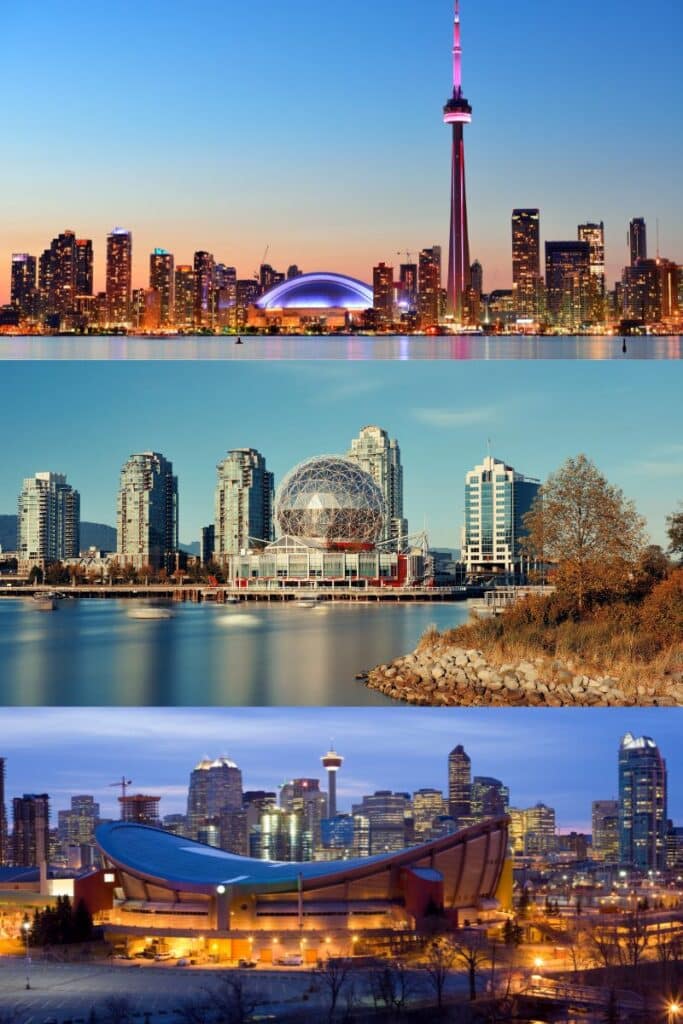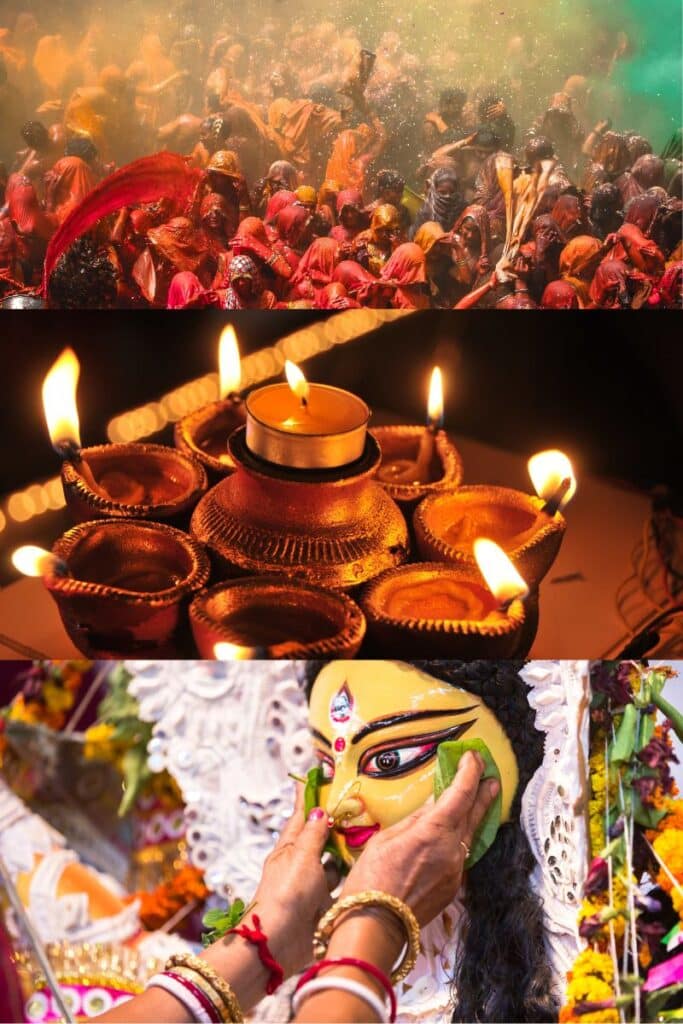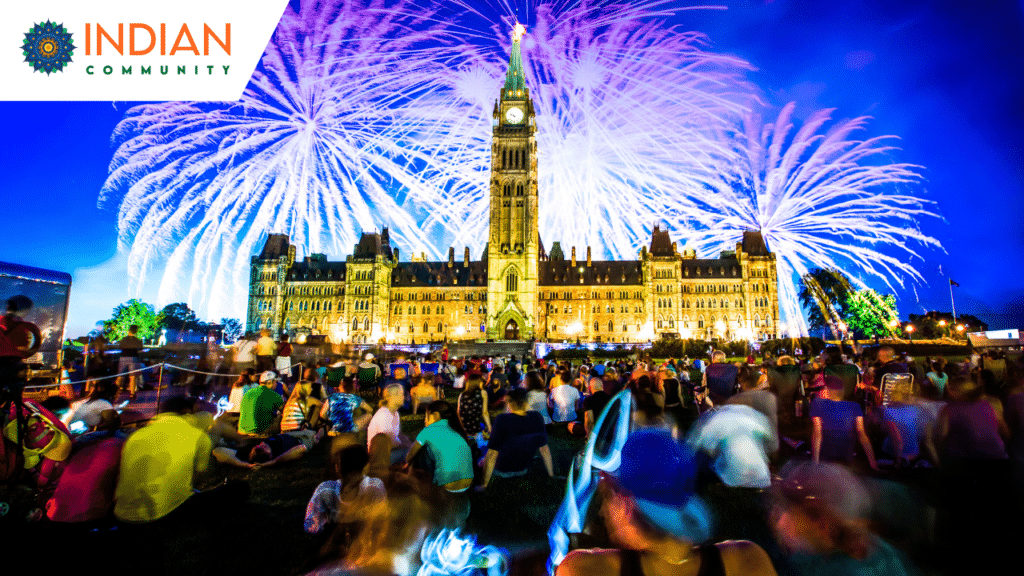The Indian community in Canada is one of the largest and most vibrant immigrant communities in the country. As of the 2021 Census, there are approximately 1.86 million people of Indian descent in Canada, making up about 5.12% of the total population.
Demographics and Distribution
The Indian community in Canada is predominantly concentrated in the provinces of Ontario and British Columbia. Ontario houses over 55% of the Indian population in Canada, with significant communities in cities like Toronto, Ottawa, Waterloo, and Brampton. British Columbia follows with nearly 22% of the Indian community, particularly in Vancouver, Surrey, and Victoria.

Major Cities
- Toronto: The Greater Toronto Area (GTA) is home to the largest Indian population in Canada, with around 812,830 individuals. Neighborhoods such as Brampton, Mississauga, and Scarborough are cultural epicenters with numerous Indian businesses, cultural centers, and religious institutions.
- Vancouver: Vancouver’s Indian population stands at around 300,195, making up 11.51% of the city’s population. The city is noted for its deep Indian heritage and vibrant cultural life.
- Calgary: Approximately 105,690 Indians reside in Calgary, drawn by opportunities in engineering, mining, and oil industries.
- Edmonton: Edmonton hosts around 90,660 individuals of Indian descent. Despite its cold climate, Edmonton’s job market and community events make it a popular choice for Indian immigrants.
Cultural Integration and Community Life
The Indian community maintains a strong cultural presence through various organizations and events. Major Indian festivals like Diwali, Holi, and Vaisakhi are celebrated with enthusiasm, attracting diverse crowds and fostering cultural exchange.
Cultural Organizations
In cities like Toronto and Vancouver, numerous Indian cultural organizations and associations provide support and foster community connections. These include:
- Indo-Canadian Women’s Association in Edmonton
- Indian Association of Manitoba
- Punjabi Cultural Association of Alberta

Festivals and Events
Canada hosts a variety of Indian festivals and events that bring together the Indian diaspora and welcome people from all backgrounds to experience Indian heritage. Some notable events include:
- Bollywood Monster Mashup in Mississauga, Ontario, the largest South Asian event in Canada.
- Diwali Mela celebrated in various cities with cultural performances, food stalls, and fireworks.
- Vaisakhi Parade in Surrey, BC, one of the largest in Canada.
- Taste of India Food Festival in Ottawa and Toronto, showcasing Indian cuisine.
Economic Contributions
Indians in Canada significantly contribute to the economy, particularly in technology, healthcare, education, and business sectors. The community has a high rate of entrepreneurial activity, with many owning businesses in retail, hospitality, and other industries.
Challenges and Opportunities
While the Indian community in Canada thrives in many areas, challenges such as integration, discrimination, and maintaining cultural identity persist. However, the community continues to make strides in overcoming these challenges through education, political engagement, and social initiatives.
Notable Figures
Prominent figures from the Indian community in Canada include political leaders like Jagmeet Singh, the leader of the New Democratic Party (NDP), who represents Burnaby South in the Greater Vancouver Area. His leadership highlights the significant role of Indians in Canadian politics and public life.
Historical Context
The Indo-Canadian community began to form in the late 19th century, primarily consisting of Punjabi Sikhs who arrived in British Columbia. Over time, the community expanded significantly, especially after changes to Canadian immigration policies in the 1960s and 1970s that favored skilled immigrants.
The Indian community in Canada is an integral part of the country’s multicultural mosaic. With its rich cultural heritage, economic contributions, and active civic participation, the community not only preserves its cultural roots but also enriches the broader Canadian society.
For more detailed data and insights, the 2021 Census by Statistics Canada provides a comprehensive look at the demographics and distribution of the Indian community in Canada.

